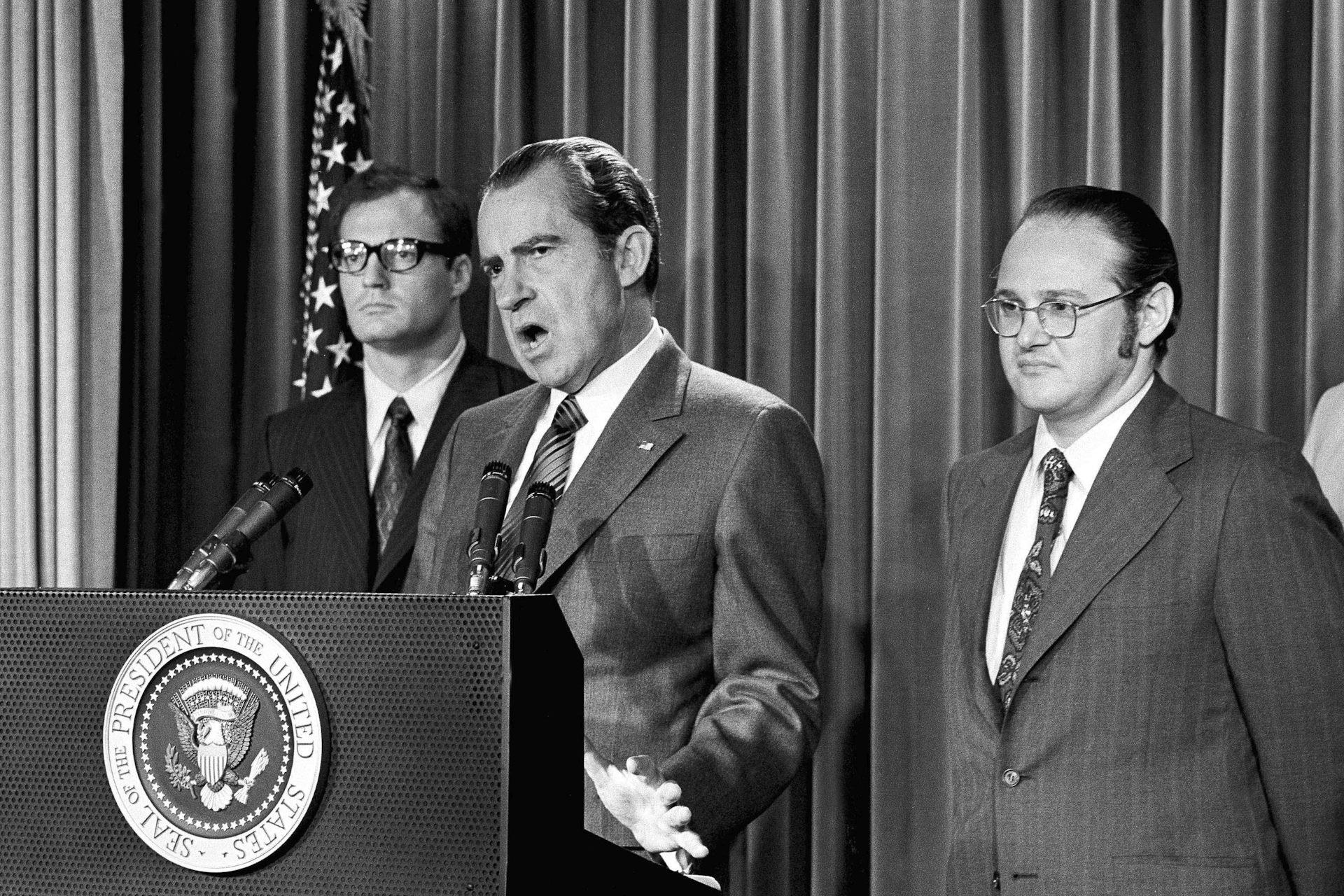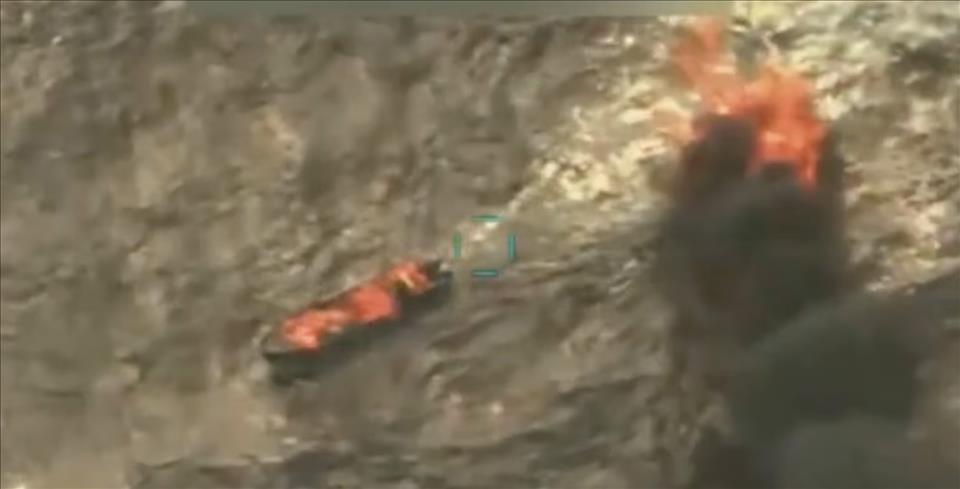Not Enemies, But People: Why The World Needs To Rethink The Language Of War
The term“narcoterrorist” conflates the U.S. internal“war on drugs” and external“war on terror” and suggests drug smuggling is punishable by death without trial.
Canada, incidentally, has followed the lead of the U.S. by designating a list of drug cartels as terrorist organizations . This means Canada is now involved in the expansion of violence against people associated with drug smuggling or drug use when they're labelled terrorists. It also aligns Canada with the American“war on drugs.”
The problem with the language of warThe problem with both terms - the“war on drugs” and the“war on terror” - lies in how they serve to justify killing people. Violence is portrayed as an appropriate response to a threat from an“enemy” rather than an attack on people who may or may not be linked to drugs or terrorism.
The attacks are carried out without the submission of evidence, and it's almost impossible to verify claims of guilt after the fact.
A brief look at the origins of the U.S. war on drugs shows how the term“war” can be used to normalize acts of oppression or violence.
It began in June 1971 when President Richard Nixon declared drug abuse“public enemy No. 1” and announced a co-ordinated federal campaign against narcotics as part of a“law-and-order” campaign . His emphasis on fighting crime played upon his belief that “people react to fear, not love.”

President Richard Nixon discusses a new program to combat the use of drugs in June 1971, labelling it 'a national emergency.' (AP Photo/Harvey Georges) Drugs and politics
While fear of drug use predated his presidency, Nixon made the issue a central part of his domestic policy. He framed his efforts as a fight to protect public health and safety as the justification for increasing the scope of police actions against drug sellers and users.
The Shafer Commission , appointed by Nixon, recommended decriminalizing marijuana in 1972, but he ignored its findings and instead enacted more punitive anti-drug legislation.
Portraying drugs and drug users as a threat was a central part of Nixon's law-and-order campaign . Privately, however, aides later revealed that his drug policy was also used to target political opponents, particularly anti-Vietnam War activists and Black communities - by associating them with drugs and justifying an increase in policing.
Nixon continued drug enforcement in the U.S. as well as through international policies aimed at curbing drug production. His administration's war on drugs was not just a social order initiative, but a political strategy that weaponized drug policy to consolidate power and marginalize opponents .
John D. Ehrlichman, a Nixon aide who was a key figure in the Watergate scandal, is surrounded by reporters outside the U.S. District Court in Washington, D.C., in 1975. (AP Photo)
Nixon aide John Ehrlichman later revealed the explicitly political nature of this campaign . By linking heroin to Black communities and marijuana to anti-war activists, the administration could discredit those groups and justify heavy policing and incarceration.
The“war on drugs” therefore relied on racist attitudes to justify its heavy enforcement of Black communities.
People, not enemiesBy branding the initiative a war on drugs, Nixon turned people addicted to drugs into enemies and implicitly made acceptable levels of oppression that would not be tolerated under normal circumstances.
But drugs are not a force that an army can defeat. The war on drugs has been a failure and become the longest“war” in U.S. history .
The idea of a war on drugs erases people from the equation and dehumanizes them. Similarly, the war on terror emphasized an emotion, namely terror, and used that emotion to justify U.S. military actions abroad, including the ill-fated Iraq War .
The recent attacks on Venezuelan boats alleged to be transporting drugs follow this pattern of justifying acts of violence in the name of combating drugs. Both exploit an understandable fear of drug addiction or of a terrorist attack, and use that emotion to silence criticism of acts of violence as illegal and inhumane.
Venezuelan President Nicolás Maduro points at a map of the Americas during a news conference in Caracas on Sept 15, 2025. Maduro vowed Venezeula would exercise its right to defend itself against U.S. aggression. (AP Photo/Jesus Vargas)
Decades later, Nixon's campaign to demonize drugs has now coalesced with the war on terror, even though the term“war” seems inappropriate in both cases.
Invoking war hastens decisions and short-circuits debate, because in a military conflict, decisiveness is crucial to avoid defeat. While initially declaring a war on drugs or terrorists may rally people in the short term, in the long term, it damages both domestic social policy as well as international relations .
Due processIn the recent strikes against Venezuelan ships, the U.S. could have apprehended the boats in international waters and brought the people on board to trial.
This was the procedure during the recent Operation Pacific Viper in the east Pacific, when the U.S. Coast Guard boarded vessels and detained people accused of smuggling cocaine.
The U.S. could have followed the same procedure with the boats from Venezuela, but calling the people on board“narcoterrorists” implicitly justified characterizing them as enemy combatants in the war on drugs.
Police officers during military exercises in La Guaira, Venezuela, on Sept. 20, 2025. (AP Photo/Jesus Vargas)
They were civilian vessels, not part of the Venezuelan military. There may or may not have been drugs on board, and the people may not have been drug smugglers, but the world will never know for certain because the U.S. military killed them and sank their boats.
The language of war in such cases justifies actions made for political motives and undermines the rule of law. Overall it is part of a wider use of the term war by Trump, who recently also seemed to declare war on the city of Chicago .
It's all of an ongoing weaponization of the term“war” to assert dominance and justify violence, whether internally against American cities or externally against people the government calls“narcoterrorists.”

Legal Disclaimer:
MENAFN provides the
information “as is” without warranty of any kind. We do not accept
any responsibility or liability for the accuracy, content, images,
videos, licenses, completeness, legality, or reliability of the information
contained in this article. If you have any complaints or copyright
issues related to this article, kindly contact the provider above.
Most popular stories
Market Research

- New Cryptocurrency Mutuum Finance (MUTM) Raises $15.8M As Phase 6 Reaches 40%
- Bydfi Joins Korea Blockchain Week 2025 (KBW2025): Deepening Web3 Engagement
- Yield Basis Nears Mainnet Launch As Curve DAO Votes On Crvusd Proposal
- 0G Labs Launches Aristotle Mainnet With Largest Day-One Ecosystem For Decentralized AI
- Ethereum-Based Defi Crypto Mutuum Finance (MUTM) Raises Over $16 Million With More Than 720M Tokens Sold
- Fintech's Gender Gap In Focus: Drofa Comms' Women Leading The Way Joins Evolvh3r's She Connects At TOKEN2049





















Comments
No comment